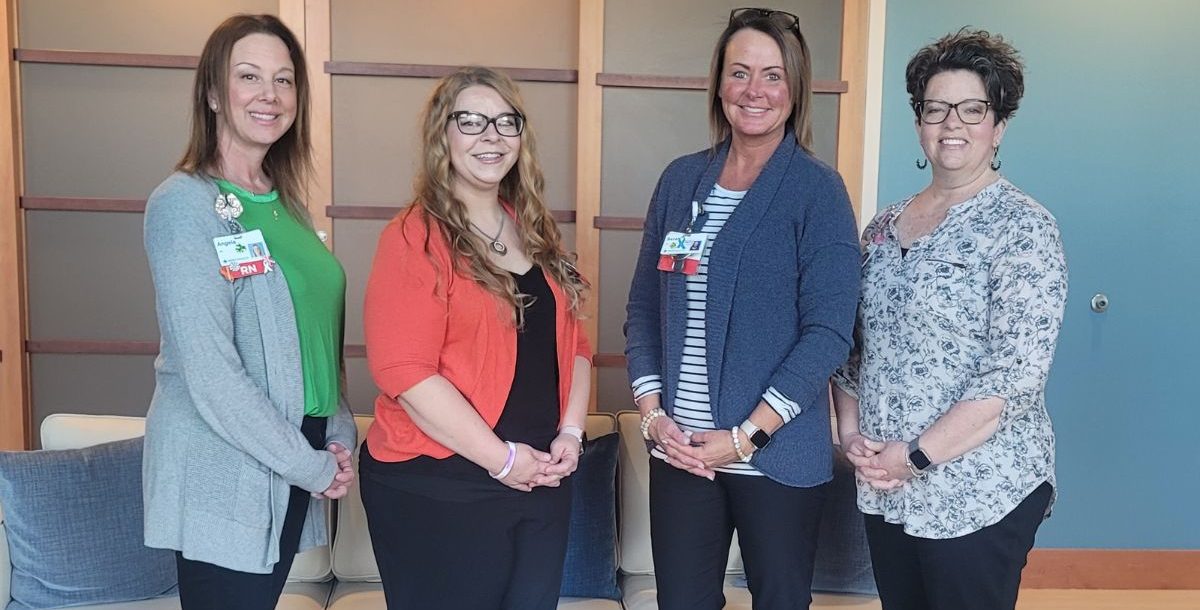Cancer is a scary word, but early detection is key to successful treatment. And regular screenings can be the difference between catching cancer in its early stages, when it’s most treatable and letting it progress.
At Mercy Health — Springfield Cancer Center, we understand the importance of preventive care. Our dedicated cancer nurse navigators (pictured above), who are registered nurses with specialized cancer care training, are passionate about empowering our community to take charge of their health. They also guide cancer patients through our health care system by educating patients, coordinating care and offering emotional support throughout the cancer journey.
Let’s take a closer look at some of the most important cancer screenings, according to our nurse navigators.
- Breast cancer screening: “A mammogram is a vital tool for early detection of breast cancer,” Tracy Adrian BSN, RN, CN-BN, a breast nurse navigator, says. “Most breast cancers are found during routine screenings, even before a woman notices any lumps.”
Early detection of breast cancer can significantly increase the chances of successful treatment. Therefore, women should also make sure that a clinical breast exam is done during their annual check-up.
- Colon cancer screening: “Colorectal cancer is one of the most preventable cancers,” Sarah Lowry, BSN, nurse navigator, explains. “Regular colonoscopies can detect precancerous polyps and remove them before they turn cancerous.”
Colonoscopies may sound daunting, but advancements have made them a much more comfortable procedure. According to the American Cancer Society, deaths from colorectal cancer have been steadily decreasing because of increased awareness and screening. Early detection is key!
- Prostate cancer screening: “Prostate cancer is a common concern for men,” Shauna Tener, RN, nurse navigator, says. “A PSA blood test and a digital rectal exam can help detect prostate cancer early. If you’re a man older than 50, talk to your doctor about your risk factors and whether screening is right for you.”
Prostate cancer screenings may begin at age 40 for high-risk men, especially African Americans or those with a family history.
- Lung cancer screening: “Lung cancer is the leading cause of cancer death,” Angela Wagner, RN , lung cancer nurse navigator, explains. “For high-risk individuals, a low-dose CT scan can help detect lung cancer in its early stages, when it’s most treatable.”
Research shows that screenings can reduce the risk of death from lung cancer.
Remember, these are just some of the important cancer screenings available. It is important to talk to your primary care provider about your individual risk factors and which health screenings are right for you. Don’t wait until you experience symptoms – early detection saves lives!
Through Mercy Health — Springfield Cancer Center’s affiliation with The Ohio State University Comprehensive Cancer Center – Arthur G. James Cancer Hospital and Richard J. Solove Research Institute’s (OSUCCC – The James) our patients get access to expertise from a world-class cancer center for more comprehensive, compassionate cancer care. Learn more the Healthy State Alliance.
Learn about the primary care and cancer care services we provide at Mercy Health.






